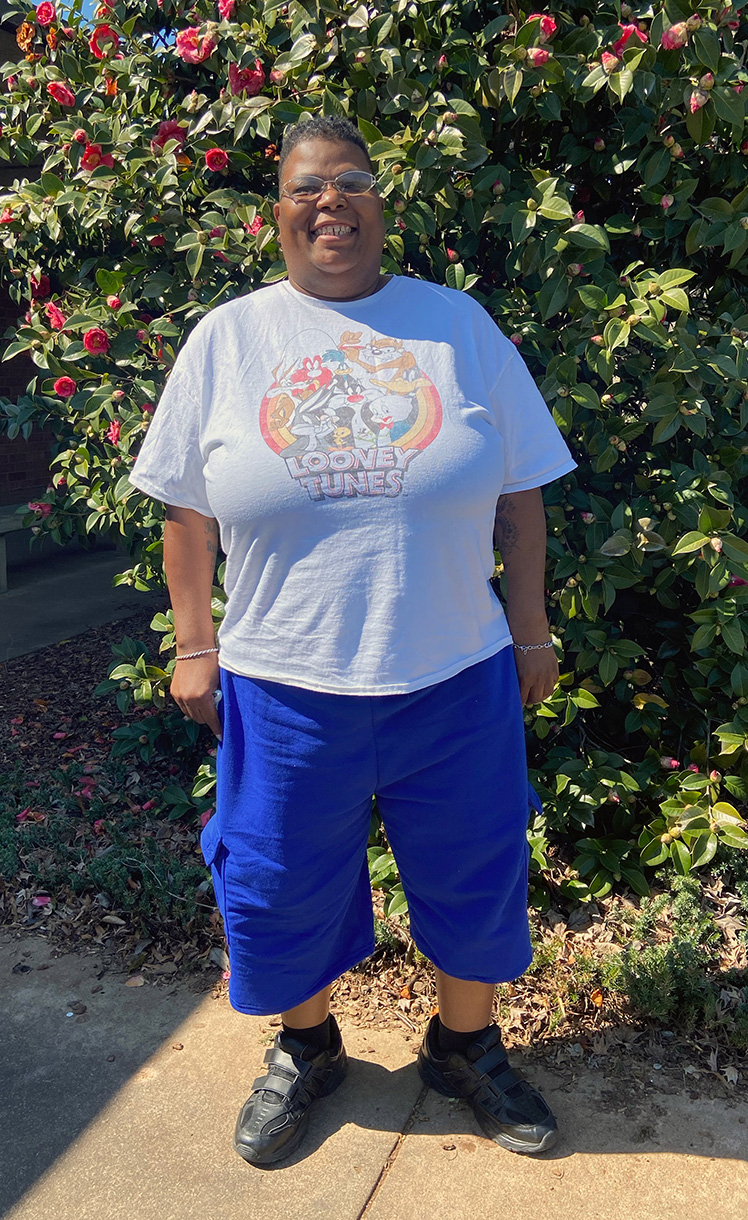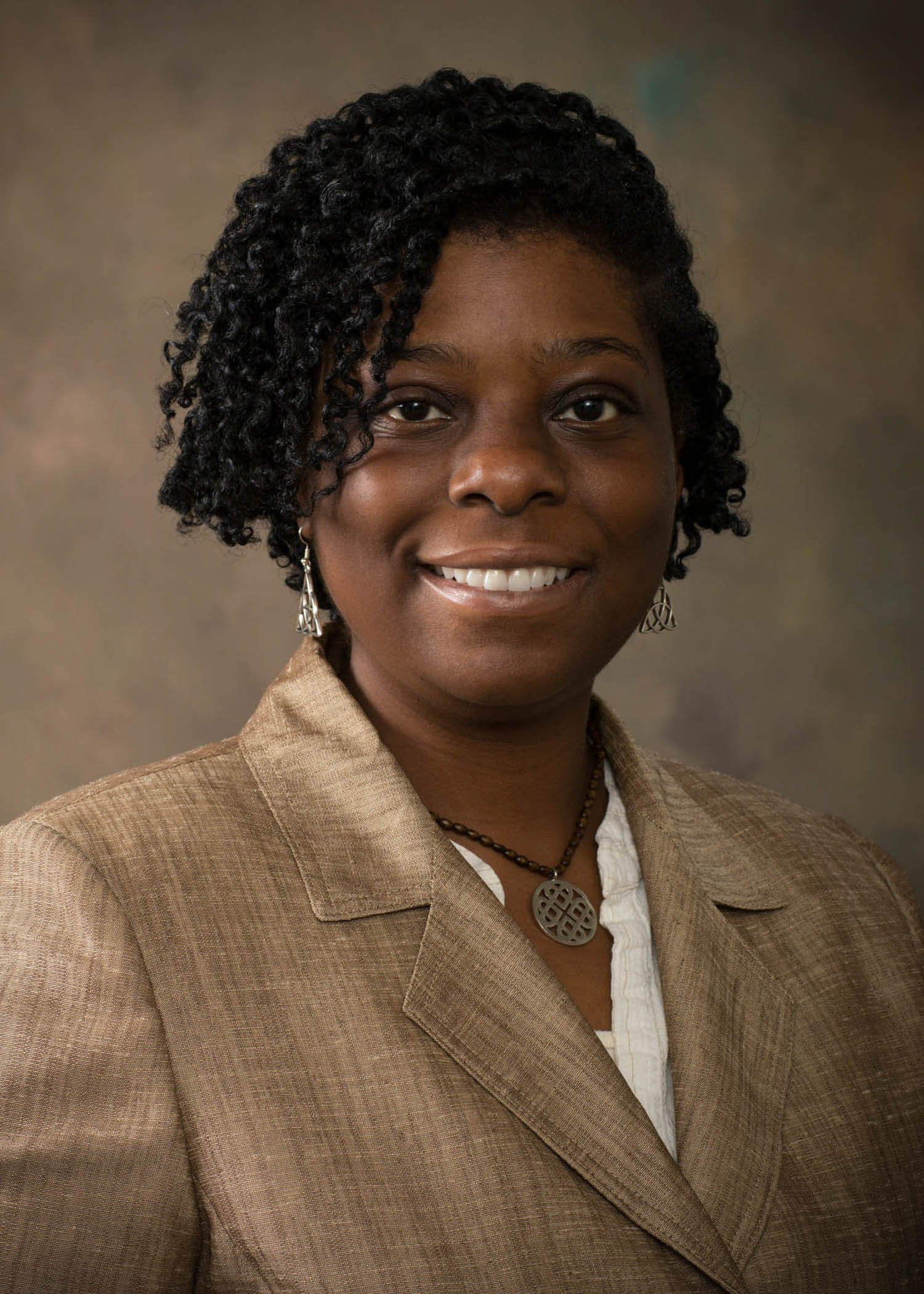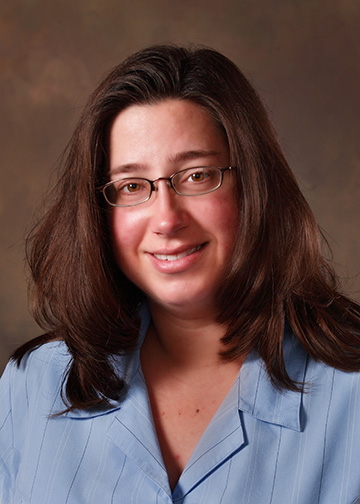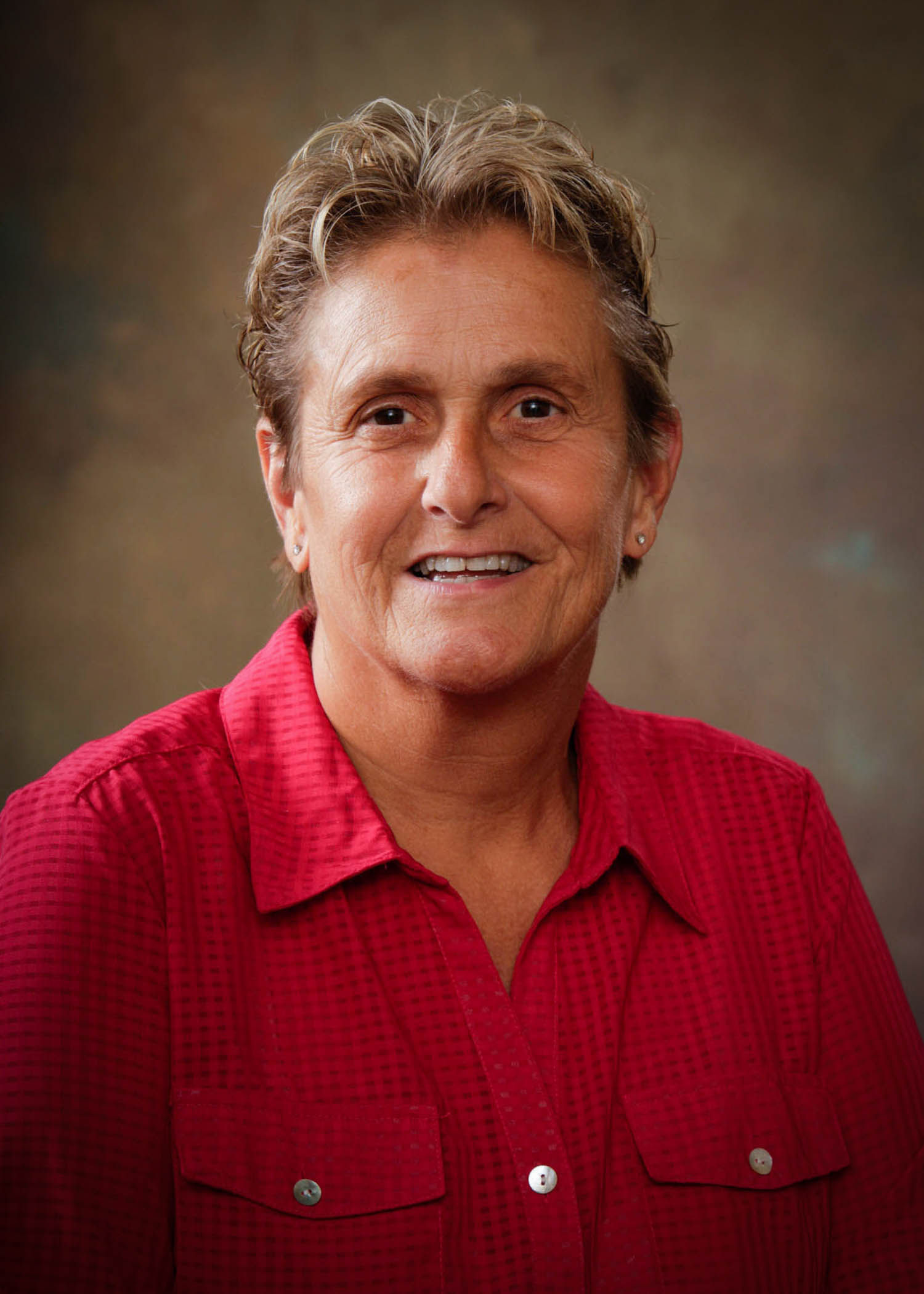Study shows RCC Success Coaches make a difference

Thanks to coach, Sherrod is back on track
ASHEBORO — Earnestine Sherrod isn’t your typical college student. Then again, Randolph Community College isn’t your typical college. The 50-year-old student has had an uphill battle, emotionally and physically, from food insecurity to multiple surgeries on her feet to asthma and diabetes. None of that is keeping her from earning her degree at RCC.“I graduated [high school] with a certificate because I completed 12th grade but I felt bad because my brother and sisters had their diplomas, but I didn’t have mine,” said Sherrod, whose daughter, Danielle, also attends RCC. “I want to be able to show something.”
Along the way, Sherrod has had a constant cheerleader in her corner: Pam Wiggins — one of two Success Coaches at RCC, who, along with fellow coach Dr. Jae Archer, is making a marked difference in not only keeping students in class, but also making sure underserved student populations stay in school.
The College was recently lauded for its efforts to retain students after taking part in a study involving its Success Coaches. The five-year study was part of the Carolina Works initiative, which aims to improve retention and completion outcomes for students through proactive, technology-mediated student success coaching. Carolina Works is supported by the U. S. Department of Education First in the World Grant and the study involved an experimental evaluation, considered the most rigorous design for estimating impacts of innovative strategies such as success coaching. The mix-methods, independent evaluation was led by DVP-PRAXIS LTD.

The RCC study found that, not only were students like Sherrod — with a Success Coach — more likely to stay in school and earn a degree, diploma, and/or certificate, but the number of students who are underserved in higher education — Black and Hispanic students, and part-time students — and male students staying in school and completing a credential also saw an increase thanks to coaching. The study also showed that strong support from faculty and staff, and a proactive, personalized approach to engaging the students, led to more students staying in school and graduating. These results, the study said, show the value of Success Coaches and that the RCC way of coaching could serve as a model for other colleges.
▪︎▪︎▪︎
Sherrod put her schooling aside to help her ailing parents, but returned with a laser-like focus after both passed away. The only person more determined to see Sherrod walk across the stage is Wiggins. She has not only helped Sherrod conquer math — connecting her with a tutor — but also figure out the bus schedule to get Sherrod to class when it was in-person and set up a computer in the library when classes went online.
“When I first met her, I said to myself, ‘There is no way this woman is going to be able to stay in college,’ ” Wiggins said. “But as we move away barriers ... . Her willingness is there. She goes to that library almost every day. And is in that simulated classroom that I set up over there in the lab. She shows up on a schedule every day.”

Just like Wiggins shows up every day for Sherrod.
“She’s always there for me,” Sherrod said, “checking up on me all the time on the phone. I love her to death. I can tell her anything. When I was in the hospital, Pam would call me and check up on me. She worked it out so I would not be behind on my schoolwork. I’ve got a lot going on. And sometimes, if I don’t understand something, I'll call Pam and she’ll try to help me or if she can’t help me, she can get somebody else who can.”
▪︎▪︎▪︎
So, how did RCC achieve such positive results?
By providing direct support to students, referring students to other college personnel and resources, and following up with students to help with any next steps. The College used Aviso Retention, a predictive analytics and case management software, to monitor in real-time student grades, attendance, and other important information provided to help students when they needed it most. The study praised Archer and Wiggins for their proactive approach to Success Coaching that not only involved building a strong relationship with students from the get-go, but also constant follow-up with students.
“You can’t be a success coach and work 8 to 5,” said Wiggins, a dually-licensed therapist who worked in behavioral health care for 35 years before coming to RCC. “You have to adjust your hours. We know from 10 to 2 is the quickest way to get students and from 6 to 10 at night is when most of them are online. And we found that out through looking at data.”

The Success Coaches also believe in empowering their students to be able to do the work on their own. Wiggins said if a student is having trouble opening a document on a computer, she will show the student how to do it and then have the student teach her how.
“The most gratifying for me is watching these kids become empowered or these students come in power, learning new tools, critical thinking, and backing off on their own,” she said. “I love that saying: ‘If you give a man a fish, you feed him for a day. If you teach a man to fish, you feed him for a lifetime.’ And at graduation I get to stand up there and high-five them.”
One of Archer’s students not only graduated, but is now a full-time marketing manager and graphic designer.
“Thank you for the constant advice, laughs, support, and much more,” the student said. “Thanks to you, I graduated. I remember going into your office multiple times to tell you, ‘Hey, I want to switch [majors] again.’ I’m happy where I ended up.”
▪︎▪︎▪︎
Of course, it wasn’t just Archer and Wiggins who made the project a success. RCC faculty needed to buy-in, too. For that, the two looked to Dean of Curriculum Programs and Project Lead Melinda Eudy, who supervised the coaches, maintained the budget, and submitted quarterly reports during the grant period.
“We knew early on that we needed to get the faculty’s support,” she said.
Eudy said the College purposely housed the Success Coaches within Instructional Services and put their offices in instructional buildings just like the faculty. There also was professional development training on AVISO and about Randomized Controlled Trials.
“We did a pre-mortem prior to the first semester of student intake in which we had the faculty flash forward to the end of the project and imagine that it was an absolute failure,” she said. “We then had them brainstorm strategies we could implement as we were beginning the project so that wouldn’t be our true outcome.”
Eudy, Archer, and Wiggins also did their best to be completely transparent and share information as they received it, giving updates on the number of alerts and achievements that had been submitted and then responded to.
“The faculty came through in a big way,” Eudy said. “They embraced the Moodle gradebook and timely entering of attendance online — both of which provided the coaches the information they needed to help in their outreach with students. Of all the colleges in the study, our faculty submitted the most early alerts and were given the title ‘Early Alert Rock Stars’ by the consortium project lead.”
As a result, the study’s researchers identified RCC as a “high-performing campus,” and referenced the College’s “culture of radical hospitality” in identifying several best practices related to effective coaching strategies:
- Meeting students where they are.
- Synthesizing data to build a holistic understanding of each student.
- Advocating to empower.
- Fostering faculty buy-in through academic leadership.
▪︎▪︎▪︎
The study results weren’t surprising for Archer, Wiggins, and Eudy.
“We had been given hints early on that our data was showing great results,” Eudy said. “Despite that heads up, we didn’t need the data to know the project was a success and that coaching was an effort worth pursuing because we had student success stories. Stories of students who, without the intervention of the coaches, wouldn’t have completed their academic journey with us. Students who, with the coaches’ help, overcame personal struggles that were hindering their academic progress. When the final results came out and the data showed the gains in retention for those assigned to a Success Coach, it validated our decision to sustain and scale success coaching at the College.”
Wiggins said once she started working with students, she realized it wasn’t their ability to learn that was keeping them from staying in school.
“I quickly figured out most of them were smart as a whip,” she said. “Most of them were able to perform academically. What they didn’t have was drive, motivation, supportive relationships, advocacy, and also there were barriers. Within the first six months, I figured out students were working two and three jobs. Students didn’t have gas to get to the campus. Students didn’t have laptops, internet, places to live. So it quickly became a kind of like a holistic approach of academics and life resources.”
Archer, who recently completed a doctorate in Higher Education, said she saw an immediate change in her students.
“I saw students’ stress level drop and their motivation to complete tough classes and progress to the next semester increase,” she said. “I could tell, in these moments, that the work we were doing was having a tremendous impact on our students. ... When students come to you and say, ‘Thank you for your help,’ or ‘I was about to quit,’ you know you are making positive strides in the right direction.”
The study team concluded that their findings suggest that success coaching is an effective strategy to help more students stay on their path and earn college credentials. DVP-PRAXIS LTD said insights from the RCC study point to these key practices that can be molded by other institutions looking to adopt success coaching on their campuses:
- Train coaches to “meet students where they are” and to prioritize face-to-face engagement.
- Ensure academic leadership is supportive of success coaches as partners with faculty to support student success.
- Engage in hiring and employee management practices that foster long-term tenure of coaches at the institution.
▪︎▪︎▪︎
Where does RCC go from here?
“We build on what we’ve done by expanding our services to more students,” Archer said. “We can also look for ways to improve our model by keeping those aspects that have proven to work and adjusting the processes that can be better.”
“I’d like to have a success coach for every few schools, like nursing, radiography, needs their own success coach. Those are hard programs,” Wiggins added. “Combine, maybe some of the industry, trades, collision, and give them a Success Coach. We need four or five on this campus — a team. That’s where I’d like to see it go. If we can get a solid team and people dug in, we could probably do a better job than we’re doing.”
The College is adding two more Success Coach to its roster, which, hopefully, will lead to more high-fives come graduation day.
▪︎▪︎▪︎
RCC was one of 10 North Carolina community colleges that participated in Carolina Works between 2015 and 2020. The $9.2 million grant awarded to Central Carolina Community College as the lead college extended the student retention program begun at CCCC. RCC’s portion of the grant over a four-year period was more than $650,000. Other colleges involved in the study were Caldwell Community College and Technical Institute, Carteret Community College, Cleveland Community College, College of the Albemarle, Isothermal Community College, Pamlico Community College, Roanoke Chowan Community College, and Southwestern Community College.
The study included more than 1,600 first-time RCC students, starting in the fall 2016-2018 terms. These students’ outcomes were tracked through Spring 2020. Half of the students were randomly assigned to a Success Coach, while the other half received the College’s standard set of services.
